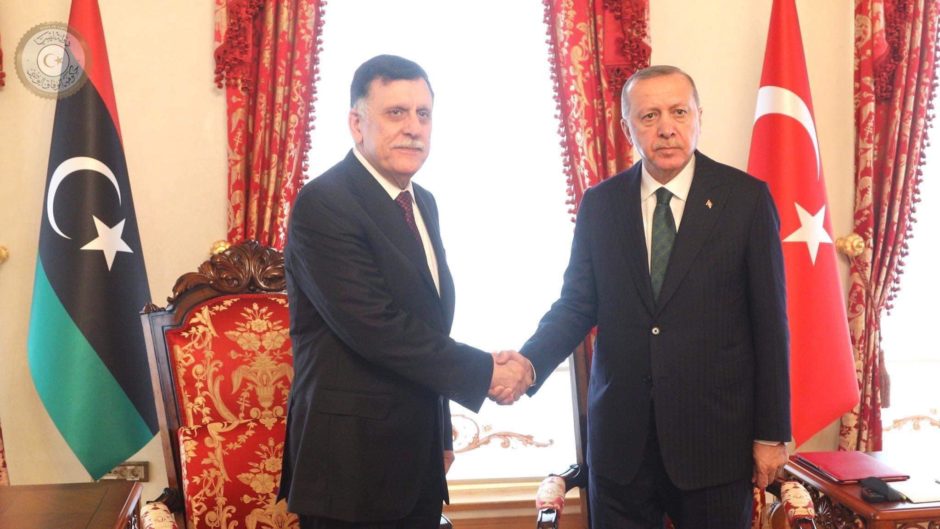
A ceasefire in Libya driven by Turkey and Russia has received backing from the two major factions in the North African country, with hostilities having officially stopped on January 12.
There have been reports of some fighting still ongoing. But the Government of National Accord (GNA) and Libyan National Army (LNA) have agreed to the deal, which puts a newfound focus on the Berlin peace talks. These could take place within the next few weeks.
The LNA’s head, General Khalifa Haftar, and GNA Prime Minister Fayez al-Serraj are expected to sign off on the ceasefire in a ceremony today in Moscow, according to reports from the Libyan media quoting the High Council of State’s chairman Khalid al-Mishri.
Russia has provided support to the LNA and Haftar, as has a number of other states including Egypt and the United Arab Emirates. Turkey backs the GNA, as does Qatar. That Moscow and Istanbul have ended up on different sides of the Libyan conflict poses some diplomatic problems as the two countries are broadly close, recently inaugurating the TurkStream gas pipeline for instance.
In late November 2019, Turkish President Recep Tayyip Erdogan signed two deals with the GNA’s al-Serraj on providing military assistance in Libya and on the maritime border. The Turkey-GNA deal on the maritime border sparked indignation from neighbouring states in the eastern Mediterranean. Greece expelled the Libyan ambassador in response.
Al-Serraj visited Erdogan on January 12 in Istanbul. Talks involved the ceasefire and the role of the United Nations Support Mission in Libya (UNSMIL). Success of the ceasefire is linked to de-escalation of opposing forces, the GNA statement said. The Turkish and GNA sides also discussed the military and maritime deals from November.
There have been some reports of violence since the ceasefire was announced but it is too early to tell whether the peace will hold. There are a number of disparate groups operating in Libya and it would be over optimistic to expect the country returns to a state of peace. However, the close links between Russia and Turkey, and their respective sides, makes this the most likely option for progress in the near term.
Whatever the impact on fighting in Libya, it is clear that the geopolitical framework of the wider region is shifting. US President Donald Trump has talked of reducing his country’s involvement in foreign conflicts. A smaller role for the US in areas where fighting is seen as intractable – whether it be Afghanistan or Africa – leaves the way open for other states to increase their presence.
